MDWEB, a pioneer in electronic marketing and digital studies, has just published the results of its online survey concerning “The impact of COVID-19 on Tunisian E-commerce”.
The emergence of COVID-19 and its shift to a pandemic has changed the consumption habits of Tunisians.
Numerous health and safety measures have curbed access to traditional businesses: Lockdown, curfew, etc.
This inquiry investigated how COVID-19 has impacted online shopping habits.
This survey is an extension of the second wave of the E-commerce barometer in Tunisia, founded by MDWEB in partnership with the Ministry of Commerce (INC) and SEVAD (UTICA).
It should be noted that this barometer aims to have a global and periodic measurement tool for the behaviour of Internet users in terms of online shopping.
This study is based on a self-administered online survey which took place from May 13 to 19 among 1019 respondents.
On a self-declarative basis, the principal objectives of the survey are to:
- Measure the online purchase rate during the COVID-19 pandemic in Tunisia.
- Determine the behaviour of buyers, the products purchased, the level of satisfaction, the means of payment and the media employed, the motivations and the barriers to purchasing …
New E-buyers:
30% of Tunisian internet users purchased online during COVID-19.
84% are pre-COVID E-buyers and 16% purchased exclusively during the pandemic period.
Overall 69% of e-buyers are satisfied with their shopping experience.
Meanwhile,27% of new buyers are not satisfied with their first online shopping experience.
Socializing E-commerce:
The 5 most purchased types of products/services on the Internet during COVID-19 are:
- Leisure and sporting goods (45%).
- Service invoices (40%).
- Home / appliances (29%).
- Food (23%).
- Health and beauty products (22%).
- Buyers spent 190 Dinars per purchase on average.
E-commerce YES but with cash on delivery:
Concerning the means of payment employed, only 50% of buyers make their transactions directly online (via bank card or e-dinar).
Approximately 72% of e-buyers pay for their purchases on delivery (in cash, by check or by card).
50% make payment only on delivery against 28% exclusively online.
The main motivations and obstacles to online shopping:
Respondents bought online essentially for:
- Avoid travelling (71%).
- Avoid the risk of contamination from COVID-19 (43%).
- Avoid waiting outside the store (23%).
For respondents who did not purchase during the COVID-19 pandemic, the main barriers are:
- The difficulty of checking the quality of products (48%).
- Online payment security (35%).
- The low choice in the propositions offered on the Internet (22%).
- Delivery times which may be too long (16%).
In a pandemic period, E-commerce has established itself as a real alternative to physical commerce and a sector of activity in its own right. Several companies already present on this channel and others predisposed have grasped how to “take advantage” of the health crisis. The victory of pure players as well as clicks and mortars during a pandemic is essentially due to the flexibility of their business models as well as their capacity to cope with unexpected demand.
For once the demand was at the rendezvous but for some in the back of the shop it was absolute mess! The orders are there but with uncontrollable waiting times and above all improvised logistics.
Logistics is more than ever today the Achilles heel of e-commerce in Tunisia.
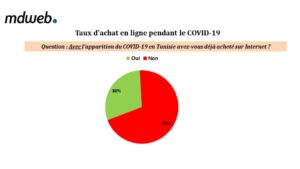
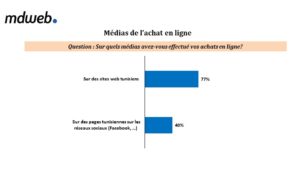
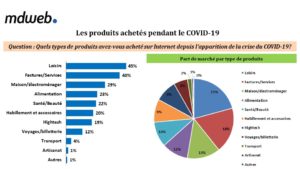

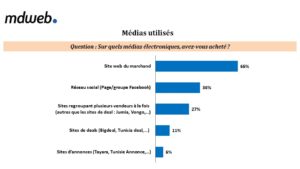


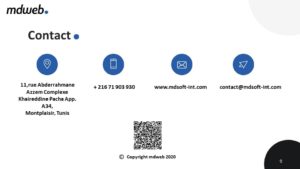
What's happening in Tunisia?
Subscribe to our Youtube channel for updates.















































